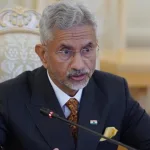Mohammad Illahi
Over four years after the historic decision to revoke Article 370 and Article 35A, Jammu and Kashmir has experienced a remarkable economic transformation, with significant growth and positive outcomes seen in the industry and business environment.
The decision, taken on August 5, 2019, by the central government to revoke the special status of Jammu and Kashmir initially sparked mixed reactions. However, recent economic indicators now reveal promising signs, indicating that the region is on a path of revitalization and prosperity.
Local residents have expressed optimism about the positive changes in their lives since the abrogation of Article 370 and 35A. Business owners and entrepreneurs have shown a renewed hope and belief in the region’s potential for sustained growth.
According to Abdul Hamid Dar, a businessman from HMT Srinagar, the removal of Article 370 and 35A significantly reduced barriers to investment in the region. This has attracted both domestic and foreign investors, resulting in substantial capital inflows across various sectors.
“After the G20 meeting was held in Kashmir, tourism has witnessed a tremendous increase in the region. The government’s substantial funds channeled towards infrastructure development, including improved roads, bridges, and transportation facilities, have bolstered connectivity, facilitating the movement of goods and services,” he said.
Dar further highlighted that over the past several years, the region has experienced a resurgence in tourism. Enhanced security measures and promotional campaigns have instilled confidence in travelers, leading to a significant rise in tourist footfall.
Fawad Iqbal, a young entrepreneur from Tangmarg, stated that the Valley has witnessed a surge in the establishment and growth of new industries post the abrogation of Article 370.
“Traditional sectors like agriculture and handicrafts have seen modernization, and new industries such as information technology, hospitality, and healthcare have taken root, providing employment opportunities to the local population,” he said.
Faisal, another enthusiastic entrepreneur, attributed the improved business climate to the government’s focus on simplifying bureaucratic processes and reducing red tape. This has not only attracted new small entrepreneurs but also encouraged existing businesses to expand their operations.
Faisal further noted that the government has invested in skill development programs, empowering the youth with necessary vocational training and expertise to actively participate in the growing economy, bridging the gap between demand and the availability of skilled labour.
Akeel Ahmad Mir, a dry fruit trader from Mir Bazar Qazigund in south Kashmir, asserted that the improved business climate has not only attracted domestic investments but has also fostered enhanced international collaborations and partnerships, enabling them to explore and expand into global markets.
“In light of the improved situation, we are now receiving orders from European and Middle East countries. The business climate in J&K has significantly improved, offering ease of doing business compared to the past,” he said.
In a recent interview, Lieutenant Governor Manoj Sinha expressed that the industrial policy of Jammu and Kashmir is now better than other states, offering more incentives than any other place. He revealed that over 80,000 Crore worth of proposals have been received, with more than 25,000 Crore being implemented on the ground.
“We are confident that at least 75,000 Crore worth of industrial investments will come to Jammu and Kashmir, increasing employment opportunities in the UT,” he said. He also mentioned that around 30,000 government jobs have been filled in the past three years, and with the new industrial investments, approximately 500,000 youths will find employment.
“We have also focused on self-employment and formed a separate department named ‘Mission Youth,’ launching various central schemes for youth and women,” added LG Sinha.




